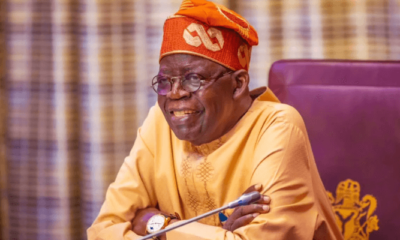National Issues
The Reasons A Domestic Refinery Would Not Impact Prices -By Adewole Kehinde
Fluctuations in consumer demand for oil and refined products can also affect prices. If overall demand is low or if there are shifts in consumer preferences towards alternative fuels, the impact of a domestic refinery on prices may be minimal.

“Sincerity may not help us make friends, but it will help us keep them” -John Wooden
Nigeria, a nation wealthy in crude oil, has long struggled with the conundrum of having a high reliance on fuel imports despite its wealth of natural resources. Due to the high landing cost of imported petroleum products, which includes charges for transportation, insurance, port customs, and other taxes, this has historically resulted in higher costs.
Because of this, Nigerians wind up paying a lot more for fuel and diesel, especially when it comes to fluctuations in foreign exchange rates and oil prices.
Many think that these problems will be resolved with the establishment of the Dangote Refinery, a major local refining enterprise. Dangote’s activities are locally based, which eliminates many of the additional costs associated with importation, such as port fees and international shipping, but this isn’t always the case for a variety of reasons.
There are several reasons why a domestic refinery may not have a significant impact on prices:
Government Policies: Government regulations, subsidies, and taxes can also play a role in determining fuel prices. These policies can help stabilise prices and mitigate the impact of individual refineries on the market.
Global Market Dynamics: Oil prices are influenced by a variety of factors on a global scale, including supply and demand, geopolitical events, economic conditions, and OPEC decisions. The impact of a single domestic refinery may be limited in the context of these larger global market dynamics.
Supply chain factors: the pricing of refined products is influenced by various factors along the supply chain, including transportation costs, distribution networks, and regulatory requirements. These factors can also help mitigate the impact of any single refinery on prices.
Competition: The oil and gas industry is highly competitive, with many refineries operating both domestically and internationally. The presence of multiple refineries competing for market share can help prevent any one refinery from having a significant impact on prices.
Demand Variability: Fluctuations in consumer demand for oil and refined products can also affect prices. If overall demand is low or if there are shifts in consumer preferences towards alternative fuels, the impact of a domestic refinery on prices may be minimal.
Naira crude oil price doesn’t translate to cheaper products; only the dollar price will be converted to Naira using the prevailing exchange rate.
No forex savings coming from domestic refineries; NNPC Ltd. is also selling crude in Naira. Other domestic refineries benefiting from this is a replacement of NNPC Ltd’s current arrangement. Therefore, there is a nil effect.
Overall, while a domestic refinery may have some influence on local or regional prices, its impact on broader market prices may be limited due to the complex interplay of various factors in the global oil and gas industry.
So, why is Aliko Dangote scamming Nigerians with cheaper PMS prices all this while?
Adewole Kehinde is an energy expert with the Abuja Chamber of Commerce and Industry Policy Centre. 08166240846 kennyadewole@gmail.com









